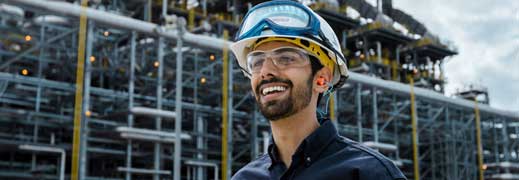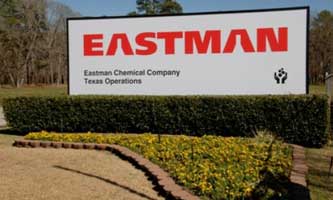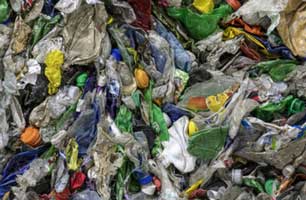DOE funding: ExxonMobil’s Baytown olefins plant to receive up to US$332 mn; Eastman’s Texas project to receive US$375 mn
The US Department of Energy (DOE) has announced US$6 billion in funding for 33 decarbonisation projects across the country, to slash emissions from the industrial sector — the largest-ever US investment to decarbonise domestic industry to fight climate change.
Energy Secretary Jennifer Granholm said that the technologies being funded are “replicable,” “scalable,” and will “set a new gold standard for clean manufacturing in the US and around the world.” White House climate adviser Ali Zaidi said this funding aims to eliminate 14 million tonnes/year of pollution, equivalent to taking about 3 million cars off the road.
Funded by the Bipartisan Infrastructure Law and Inflation Reduction Act, it will focus on the "highest emitting industries where decarbonisation technologies will have the greatest impact, including aluminium and other metals, cement and concrete, chemicals and refining, iron and steel, and more," the DOE said.

Six chemical projects have been singled out in Texas. One of those projects is chemical firm ExxonMobil’s Baytown olefins plant that will receive a grant up to US$332 million to “enable the use of hydrogen in place of natural gas” for ethylene production, with the goal of cutting down the plant’s total emissions by more than half.
The equipment modifications aim to enable the use of up to 95% clean hydrogen fuel. When fully implemented, the modifications would expect to avoid 2.5 million tonnes/year of carbon emissions—equal to more than 50% of the plant’s total emissions—and would reduce criteria air pollutants.
However, according to reports, environmental advocacy groups say they’re sceptical. Luke Metzger, the executive director of Environment Texas, said the hydrogen that Exxon would use would likely be produced using natural gas, which would add to the plant’s emissions and nullify the benefits of the project.
“Ultimately, it could be a wash in terms of the emissions impact and further delaying the transition towards clean, renewable energy,” Metzger said. “This hydrogen scheme, I worry, is not actually going to be a net positive for public health or the environment.”
An ExxonMobil spokesperson said they’re implementing carbon capture and storage technology at the plant, which would capture “over 98% of the CO2 produced from the facility” and store it underground.
Over the last few years, the Baytown plant has repeatedly violated federal standards. According to the US Environmental Protection Agency’s website, several “high priority” air quality violations were found during at least 12 separate inspections before May 2022 — a total of 25 violations have been found over the last five years.
According to the ExxonMobil spokesperson, the company complies with “all applicable laws and regulations” and has reduced greenhouse gas emissions at the Baytown refinery from flaring by 82% between 2019 and 2022.

Meanwhile, US materials firm Eastman’s second US molecular recycling project has also been selected by the DOE to begin award negotiations for up to US$375 million. The DOE announcement led to Eastman announcing the intent to build a second US molecular recycling facility at its location in Longview, Texas.
The company selected the Longview site due to synergies with existing infrastructure and operations, favourable energy supply and footprint, and access to western and central US feedstock pools. The location also provides enough space for onsite renewable energy. The investment includes operations that will prepare mixed plastic waste for processing, Eastman’s next-generation molecular recycling unit to depolymerise waste, and a polymer facility to create virgin-quality materials for packaging and textiles. The Longview molecular recycling facility will have the capacity to recycle approximately 110,000 tonnes of hard-to-recycle plastic waste.

The investment is expected to bring over 200 full-time, high-paying jobs to the Longview community in addition to approximately 1,000 temporary construction jobs during site development and building of the facility. Eastman has operated in the Longview community for over 70 years and currently has over 1,500 team members at the location.
The company was selected by the DOE to accelerate the demonstration of industry-leading low-carbon intensity recycled PET with this project. Reaching a collaborative agreement with the DOE enables expanding the project to include the deployment of thermal heat batteries and onsite solar power. This, combined with Eastman’s next-generation methanolysis technology, achieves a step-change improvement in decarbonising PET production resulting in recycled PET with greater than 70% reduced carbon emissions compared to fossil virgin production, and approximately 90% reduced carbon emissions when including avoided emissions.
Eastman’s planned project in Longview is aligned with the DOE’s goal of catalysing industry-wide change to a low-carbon future. Also, as part of the award from the DOE, the company plans to support the renovation of a community centre to be used as a hub for community outreach, workforce training and development, and other ongoing needs of its community partners.
Eastman also obtained significant state and local tax incentives in support of the project totalling approximately US$70 million.
Eastman adds that its proven polyester renewal technology recycles hard-to-recycle plastic waste bound for landfill or incineration today. The company’s technology allows this waste to be broken down into its molecular building blocks and then reassembled to become virgin-quality material without compromising performance. Eastman is enabling the potentially infinite use of materials by keeping these valuable molecules in production, in a material-to-material high-yield loop. Eastman can transform waste plastic into virgin quality food contact polyesters with lower greenhouse gas emissions than traditional methods.
In addition to this newly announced facility in Texas, Eastman has recently completed its first molecular recycling facility in Kingsport, Tennessee, and plans to invest in another location in France.
(PRA)SUBSCRIBE to Get the Latest Updates from PRA Click Here»







